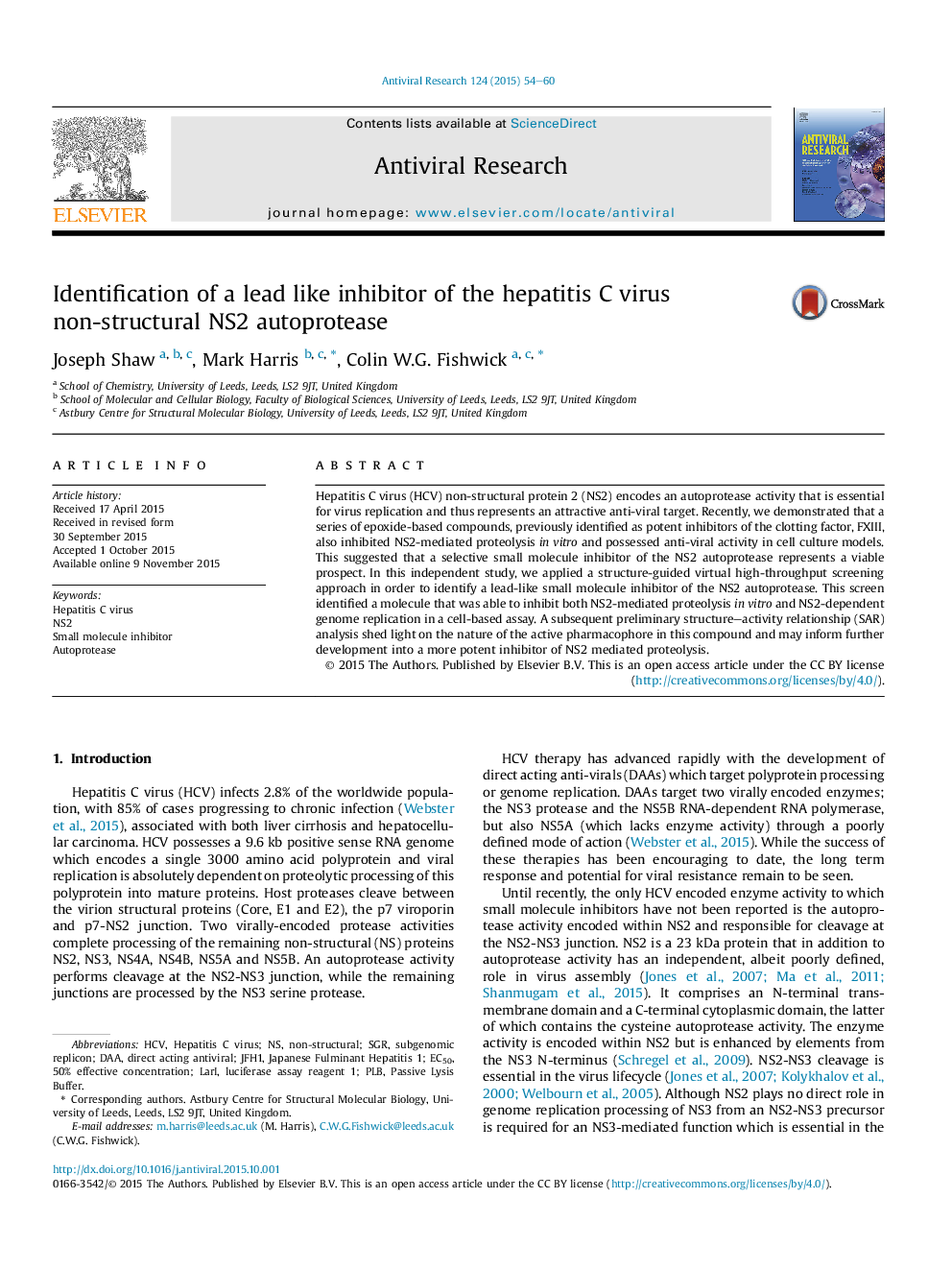| Article ID | Journal | Published Year | Pages | File Type |
|---|---|---|---|---|
| 5821865 | Antiviral Research | 2015 | 7 Pages |
â¢In silico screening identified a small molecule inhibitor of hepatitis C virus NS2 autoprotease in vitro.â¢This compound showed specific inhibition of NS2-NS3 autocleavage dependent HCV genome replication in a cell based assay.â¢NS2 protease is a valid target for further drug development.
Hepatitis C virus (HCV) non-structural protein 2 (NS2) encodes an autoprotease activity that is essential for virus replication and thus represents an attractive anti-viral target. Recently, we demonstrated that a series of epoxide-based compounds, previously identified as potent inhibitors of the clotting factor, FXIII, also inhibited NS2-mediated proteolysis in vitro and possessed anti-viral activity in cell culture models. This suggested that a selective small molecule inhibitor of the NS2 autoprotease represents a viable prospect. In this independent study, we applied a structure-guided virtual high-throughput screening approach in order to identify a lead-like small molecule inhibitor of the NS2 autoprotease. This screen identified a molecule that was able to inhibit both NS2-mediated proteolysis in vitro and NS2-dependent genome replication in a cell-based assay. A subsequent preliminary structure-activity relationship (SAR) analysis shed light on the nature of the active pharmacophore in this compound and may inform further development into a more potent inhibitor of NS2 mediated proteolysis.
